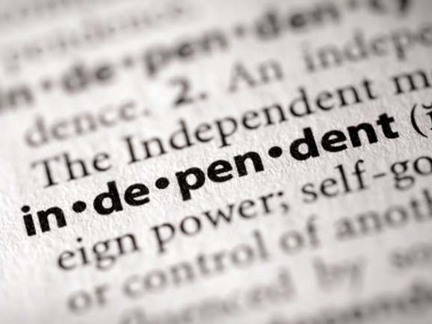Three new polls track the growing Independent plurality

Three separate polls published last week by the Pew Research Center, WSJ/NBC News, and the Quinnipiac Polling Institute shed new light on some old assumptions about America’s Independents. Though they remain largely unrepresented, being dominated by partisans of the two major parties, Independents continue to outnumber Democrats and Republicans by significant margins.
41% of the respondents in the WSJ/NBC survey identified themselves as Independents, while 29% described themselves as Democrats and 22% called themselves Republicans. One finds a similar breakdown in the survey conducted by Pew, which found 37% Independents, 33% Democrats and 24% Republicans. The latter tracks rather closely with party ID averages across a wider swath of surveys compiled by Pollster.com: 36.3% Independent, 32.1% Democrat and 24.4% Republican.
Commentators sympathetic to the Republican and Democratic parties often downplay the significance of America’s Independent plurality by arguing that the majority of Independents are in fact secret partisans who lean toward one major party or the other. This is born out to some extent by the WSJ/NBC poll which inquired as to the partisan leanings of Independents, Democrats and Republicans alike. The 41% of respondents who identified themselves as Independents were composed of 19% who stated they are “strictly Independent,” 12% who admitted they “lean Republican” and 10% who “lean Democrat.”
Yet, given the public’s deep discontent with the direction the nation is headed under the leadership of the Democratic and Republican parties, perhaps we might turn the tables and ask whether a great many self-described Democrats and Republicans are actually secret Independents. According to the Pew survey, 52% of Americans stated that they are “frustrated with the federal government,” and 60% of the respondents to the WSJ/NBC poll said that they think the nation is headed “off on the wrong track.” Significantly, in the latter poll, strict Independents (19%) outnumbered both “strong Democrats” (17%) and “strong Republicans” (10%).
Independent discontent is apparent across the board. According to the survey conducted by Quinnipiac, 64% of Independents disapprove of the way Congressional Democrats are handling their job, and 56% disapprove of the way Congressional Republicans are handling their job. Moreover, though they like President Obama as a person, they disapprove of the way the president is handling everything from the economy and the budget deficit to health care and foreign policy. 79% of Independents told Qunnipiac that the budget deficit is a “very serious problem.” To address the budget deficit, most Independents do not support cuts to Social Security, Medicare or Medicaid, but rather show a preference for cutting defense spending and raising income taxes on households making more than $250,000.
The Pew Research poll, on the other hand, found that Independents have grown more liberal on a number of social issues. According to their survey, a majority of Independents (51%) now support same-sex marriage – including 46% of Republican-leaning Independents – an overall change of nearly ten points since 2006. A majority of Independents (58%) also say that abortion should be legal in all or most cases, and nearly half (49%) agree that marijuana should be legalized. 54% place greater emphasis on protecting the rights of gun owners than on gun control.
These three polls would seem to confirm the long-standing conventional wisdom that, as a bloc, Independents are moderates who are less liberal than the average Democrat and less conservative than the typical Republican. Surprisingly, however, Independents are not strong proponents of political compromise: 53% told Pew that they like elected officials who “stick to their positions” rather than those who “make compromises with people they disagree with.”
Independents are thus arguably better represented by the Democratic and Republican parties on that score than they are on any particular issue. As Julia Edwards reported last week at National Journal,
“Only 10 lawmakers have voting records that overlap with the opposing party, and they're all in the House. Eight of the 10 moderates lost their seats in November.”
If, on the contrary, Independents would rather see Independent lawmakers sticking to their positions, they’re going to have to elect them first.
To read the polls in their entirety, see: Pew Research Center, WSJ/NBC News, and the Quinnipiac Polling Institute.




